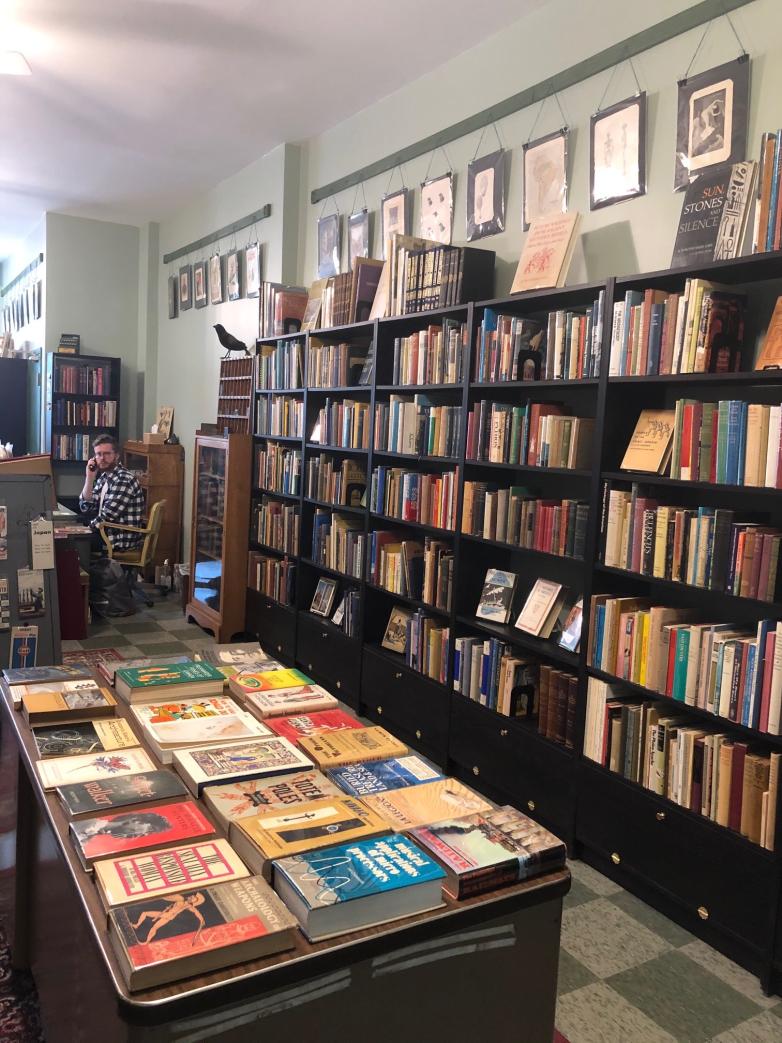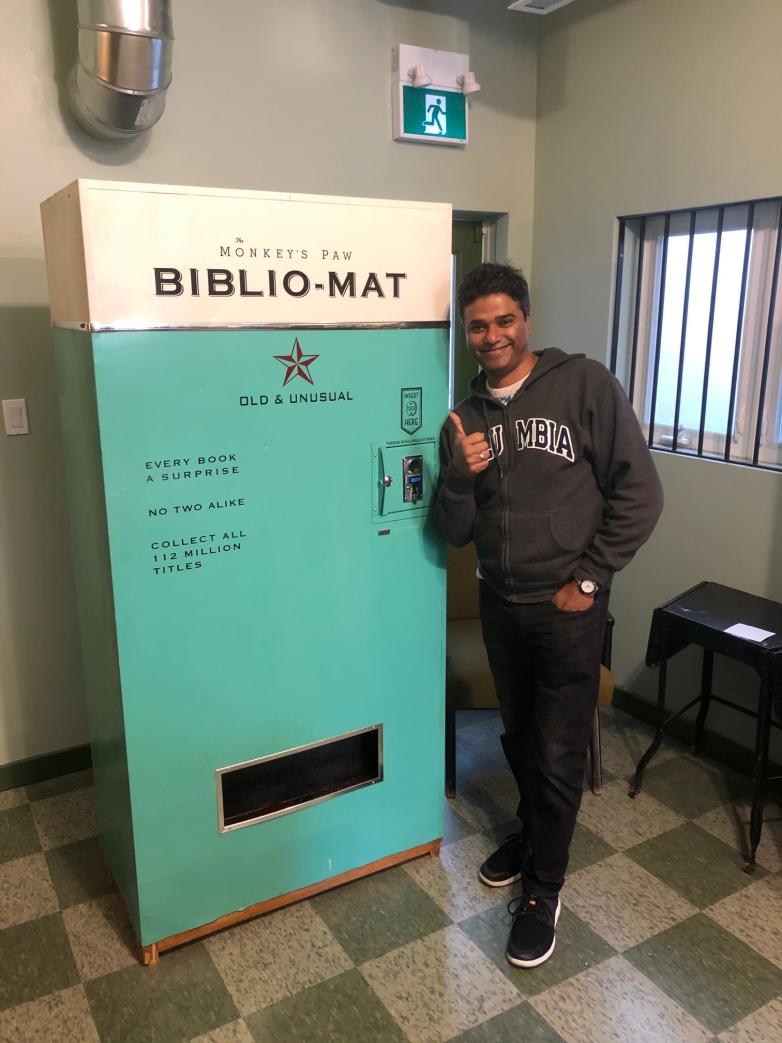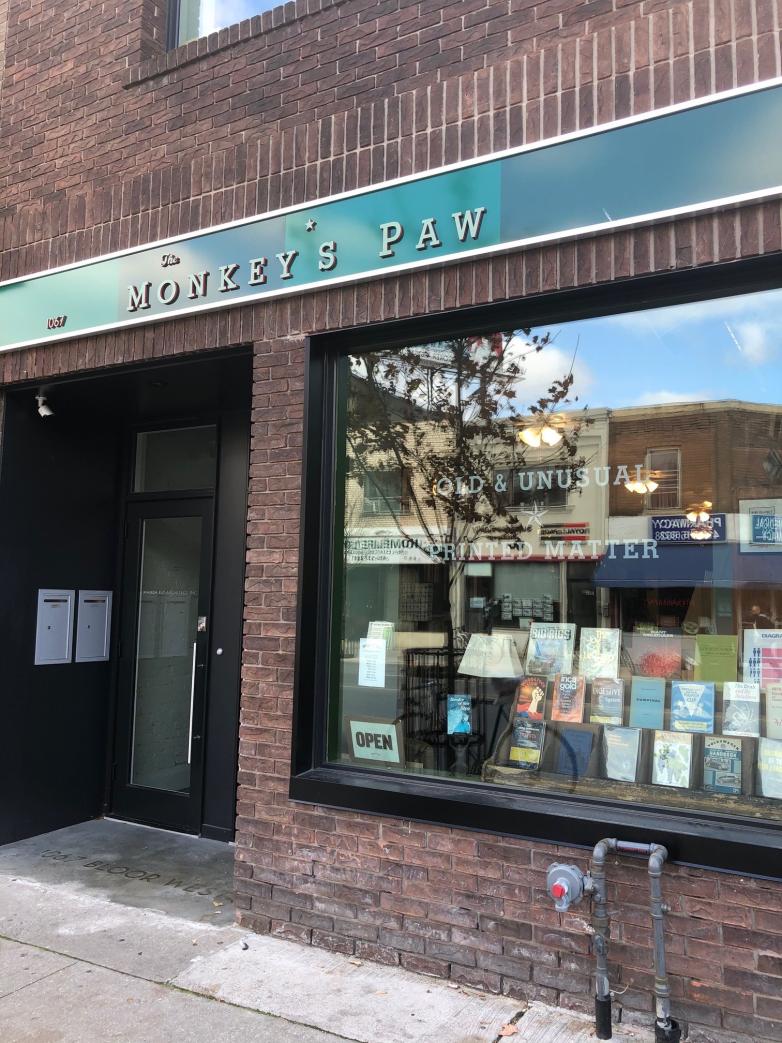VRF: Please tell us in detail about the genesis of the idea of Biblio-Mat? Why haven’t anyone else replicated the idea?
SF: To be honest, I don't really know where the germ of the idea came from. I know that I had a lot of kinda cool older books in the basement — stuff too odd or interesting to throw away, but which for one reason or another wasn't likely to sell off the shelves; and I wanted to find a way to get these books into people's hands. I had the sense that if I selected the books for people, rather than giving them any choice in the matter — in other words, providing them with a surprise book — they'd be more likely to actually consider the book on its merits, and perhaps appreciate it. Having a machine (apparently) make the decision added a sensational carnivalesque twist. When I described the idea to my friend Craig Small, he became very excited, and offered to build the machine for me. I guess Craig had an instinct that the finished product would really resonate with people; but to be honest, I was flabbergasted by its popularity.
After we'd had the machine for a while, I came to understand that the reason it suited the shop so well was because it basically provided the Monkey's Paw experience in miniature: for people who didn't have the time, patience, or money to browse the shelves, it was an instantaneous way to get the thrill of bibliographic discovery. Some of my acquaintances in the book trade dismiss the Biblio-Mat as a cheap gimmick, and accuse its users of not being "serious" book people (and indeed our more experienced customers do prefer to spend their time browsing the shelves, rather than feeding tokens into the machine). But having seen literally tens of thousands of budding bibliophiles receive books from the Biblio-Mat, I can attest that its users are mostly curious, open-minded, and prepared to find interest and amusement in whatever the machine selects for them. And through it, we've been able to find homes for countless orphaned old books.
As to why no one has replicated the Biblio-Mat: first of all, I can't say for sure that they haven't... although I've never seen another one anywhere else. But if no one has built another, I suppose the reasons would be as follows: engineering a machine to serve up random books of various dimensions is actually a pretty complicated undertaking; selling hard-to-find books for $3 each is not a lucrative business proposition; and locating sufficient interesting old books to stock the thing is a never-ending challenge. Only a crazy person would ever do it! [Editor’s Note: “New book” vending machines have been around since the 40s.]


















